Towards Voluntaryism (Part 25)
3.8. Government: Jury Nullification & Opposing Injustice
Towards Voluntaryism (Part 25)
Jury Nullification as a Principle of Justice
The most powerful person in a courtroom is a member of the jury. Lawyers argue the law. Judges abide by the law. But a jury member is entitled to pass verdict on both the accused and the law itself. Jury nullification, also known as conscientious acquittal, juror veto or jury pardon, is the last and best line of defense against an unjust law or the unjust application of any law whatsoever in a legal system based on common law (USA, Canada, UK precedents).
What is jury nullification?
Jury nullification is a constitutional doctrine which allows juries to acquit criminal defendants who are technically guilty, but who do not deserve punishment. It occurs in a trial when a jury reaches a verdict contrary to the judge’s instructions as to the law.
A jury verdict contrary to the letter of the law pertains only to the particular case before it. If a pattern of acquittals develops, however, in response to repeated attempts to prosecute a statutory offence, this can have the de facto effect of invalidating the statute. A pattern of jury nullification may indicate public opposition to an unwanted legislative enactment…source
What this means is that anyone, when serving on a jury, can find an individual innocent of a crime if - in the opinion of the juror - the law itself is unjust or unjustly applied. This was established by the US Supreme Court in the 1794 case of Georgia vs. Brailsford by Chief Justice John Jay who commented:
...on questions of fact, it is the province of the jury, on questions of law, it is the province of the court to decide. But it must be observed that by the same law, which recognizes this reasonable distribution of jurisdiction, you have nevertheless a right to take upon yourselves to judge of both, and to determine the law as well as the fact in controversy. On this, and on every other occasion, however, we have no doubt, you will pay that respect, which is due to the opinion of the court: For, as on the one hand, it is presumed, that juries are the best judges of facts; it is, on the other hand, presumable, that the court are the best judges of the law. But still both objects are lawfully, within your power of decision.
A century later, the principle and execution of jury nullification by juries began to be actively opposed by the judicial branch and, although incapable of eliminating its validity in keeping with common law, have made every effort to suppress knowledge of jury nullification among the general public.
1794 precedence established (as above)
1895 in Sparf v. United States SCOTUS rules federal judges not mandated to inform jurors of their right to judge the law itself.
1969 in U.S. v. Moylan 4th Circuit ruled a court can refuse to instruct jurors on nullification while confirming the act of jury nullification itself as valid.
1972 in United States vs. Dougherty U.S. Court of Appeals in DC upheld that courts can deny the defense the opportunity to instruct a jury on their right to nullify. (Abridgement of 1st Amendment)
1997 2nd Circuit ruled jurors can be dismissed from a jury if evidence is available they intend to nullify.
2002 South Dakota Voters rejected a state constitutional amendment to permit criminal defendants to argue for jury nullification. (Abridgement of 1st Amendment)
2012 New Hampshire passed a law allowing defense attorneys to inform juries about jury nullification.
2014 New Hampshire Supreme Court nullified the law of 2012 on the contention that the semantics of the term 'nullify' are not entirely accurate.
2015 Keith Woods arrested in Michigan and charged with obstruction of justice and attempting to influence jurors for handing out informational pamphlets on jury nullification to individuals that were not seated on a jury. Obstruction of justice charge dropped, found guilty of attempting to influence jurors, sentenced to 16 days in jail.
2016 HB2600 introduced in West Virginia. This bill proposes allowing a defendant to inform the jury about jury nullification, failure to do would be grounds for mistrial. This bill has been pending and not yet brought to the vote for over two years. Currently it languishes in the house judiciary committee.
- 2017 9th Circuit upheld a judge's instructions to the jury that read: "You cannot substitute your sense of justice, whatever that means, for your duty to follow the law, whether you agree with it or not. It is not for you to determine whether the law is just or whether the law is unjust. That cannot be your task." This is a clear contradiction of the SCOTUS 1794 (above) delivered by a lower court. The 9th Circuit then contradicted their own findings by ruling invalid the judge's continuing instructions to the jury that read: "There is no such thing as valid jury nullification. You would violate your oath and the law if you willfully brought a verdict contrary to the law given to you in this case."
In short, jury nullification IS valid and jurors are free to deliver verdicts that disregard a law they deem unjust, unjustly applied or whose sentence if convicted does not fit the severity of the crime. Practically speaking, the term 'jury nullification' is less the nullification of a law than a case-specific "exemption" that can be exercised by an individual juror. This is because it does not actually nullify a law, it only exempts an accused from having to answer to it. What this tells us is that some courts will play semantic games to keep people from exercising their right to judge the law when seated on a jury.
2017 Colorado Court of Appeals upheld the dismissal of felony jury-tampering charges against Mark Iannicelli and Eric Brandt for educating jurors about their rights as jurors. That people can be charged with felony jury-tampering for educating people about their rights when sitting on a jury appears, to this author, a gross miscarriage of justice and abuse of power.
2018 in State of Michigan vs Keith Eric Wood (appeal), Wood conviction upheld and decision codified in written form before oral arguments.
It is not necessary for a juror to conform to the opinion of the majority in the jury. If a jury unanimously agrees to exercise their right to jury nullification due to manifest injustice, the defendant is acquitted, i.e. found not guilty. If a jury does not arrive at a unanimous consensus, the jury is considered a 'hung jury' and the judge will likely declare a mistrial. See What Happens If There Is a Hung Jury?
So why don't defense attorneys regularly instruct juries on the principle of jury nullification? Because attorneys, all attorneys, both prosecution and defense, are Officers of the Court. Their mandate is to abide by and uphold the law as it is written, regardless of if it is just or not. Having sworn an oath to uphold the law, they are prohibited from advocating for jury nullification - even if it helps their client. The law and justice are, at times, two very different things. Judges are required to serve the law, they are required to uphold the law and they are required to pass judgment in accordance with the law. They are not required to render justice.
If you serve on a jury, neither the attorneys nor the judges may explain jury nullification to you. In fact, the questions they ask jury members during the beginning of the selection process can render nullification decisions illegal. During the selection process, an attorney may ask a prospective juror about anything that could prevent him or her from using the law as a decision making tool.
Technically, the courts may consider a “no” answer (and subsequent jury nullification decision) an illegal act of perjury. Those who know about jury nullification must think carefully before bringing it up in a courtroom setting. Each juror has a right to make a decision based on the facts and the laws of the case, but the rules don’t require him or her to justify a decision to other jurors. source
It is critical to understand that jurors are expected to use their conscience, not become a mindless adherent to the law in a jury situation. Further, jurors cannot be punished for rendering a verdict, even if it is a not guilty verdict for a defendant who clearly violated the law. Any instruction to the contrary by an officer of the court is a lie designed to place the courts over the people, not to ensure they are trustworthy and loyal servants of the people.
Jury nullification has a long tradition in the United States. It was frequently used prior to the Revolutionary War to decide cases of maritime law and free speech. Before the Civil War it was used to avoid convictions for violators of the Fugitive Slave Act. Nullification likely peaked during the prohibition, when juries refused to find bootleggers and drinkers guilty of violating alchohol prohibition laws. Currently, nullification is used occasionally in cases violating marijuana prohibition laws, see the cases of Ed Forchion, Steven Ficano and Touray Cornell for examples.
For a video primer covering jury nullification - with the great Ron Paul included - watch the following:
Watch it!
How Jury Nullification Fits into Towards Voluntaryism
At the first opportunity, a ballot initiative should be initiated to make jury instruction on the topic of jury nullification mandatory in all court cases that involve a jury. This could be done by introducing stand-alone legislation or appending the following to the legislation proposed in Part 23 as follows:
§5.22. Sitting juries shall be instructed prior to the beginning of any court case of the principle of jury nullification, its history, notable examples and the right of the citizen juror to judge the law itself.
§5.23. The jury selection process shall not include questions designed to eliminate potential jurors from serving on a jury as a consequence of their knowledge or willingness to employ jury nullification.
§5.24. Any law that is repeatedly deemed unjust or unjust applied by a jury shall, after the tenth (10th) jury nullification, be subjected to a general vote of the public as to if the law should be upheld or repealed. The repeal shall be effective immediately upon tally of a successful vote to repeal said law and all cases involving that law summarily dismissed.
§5.25. Any officer of the court who refuses to educate a jury on jury nullification or instructs a jury not to consider jury nullification as a valid option in any case shall be charged with obstruction of justice.
This step is more necessary than ever considering the abuse and limitation of individual rights by unjust laws designed to empower government and subjugate the individual to government. The government however is supposed to work FOR the people. That is why public servants are called servants. It is critical that jurors are informed that they do NOT work for the court or for the law, they work for JUSTICE.
By engaging as informed jurors in a court of law, people can actively oppose unjust laws in execution and keep people out of prison for victimless crimes or falling prey to absurd laws that serve no purpose other than to feed the prison industrial complex slave labor.
If you, a friend, an acquaintance or someone you love is called to court for any reason, it is advisable to inform them and yourself of your rights in a jury trial setting. Visit the Fully Informed Jury Association for a wealth of resources, information and educational materials that can change all of our lives for the better.
Next [Towards Voluntaryism (Part 26)]
...
The information above has been compiled from the following sources:
https://fija.org/
https://en.wikipedia.org/wiki/Jury_nullification
https://www.copblock.org/29691/what-is-jury-nullification/
https://www.mailletcriminallaw.com/what-is-jury-nullification/
Disclaimer: None of the above or any part of Towards Voluntaryism is to be considered legal or financial advice.
.
.
.
Shot with a golden arrow,
Cupid Zero
.
I consider requests to write on a topic of your choice.
.
Don't forget to upvote, follow and resteem! Comments always appreciated.
.
.
.
.
.
.
.
.
.
.
.
.
.
If you aren't on Steemit, please consider supporting my work with a gift of:
.
Bitcoin: 1fruAGn9JcKqJJscreUpS2XurfLzksBe8
Litecoin: LQf19ExcdSFDjYj6NktRgzBnJ7NScVgikA
Ethereum: 0xEe3005b1D2D8963a85E1Ca4ff511acCd98A1E29D
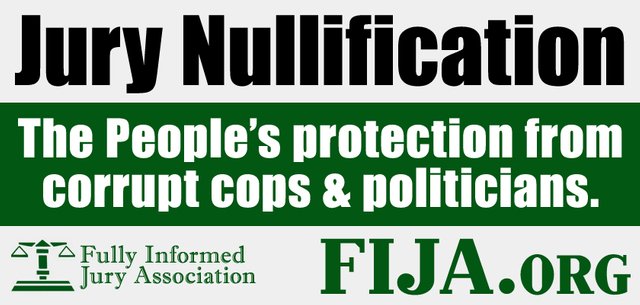
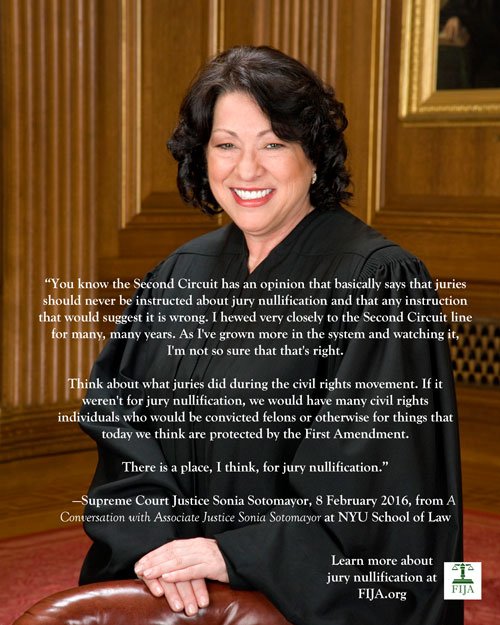

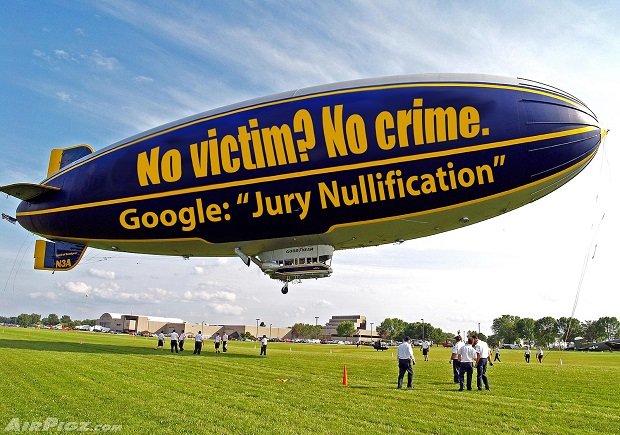
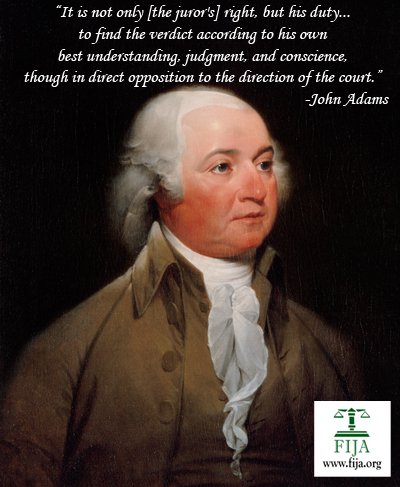
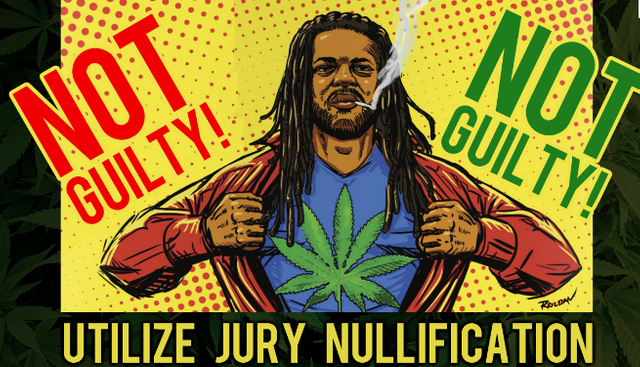
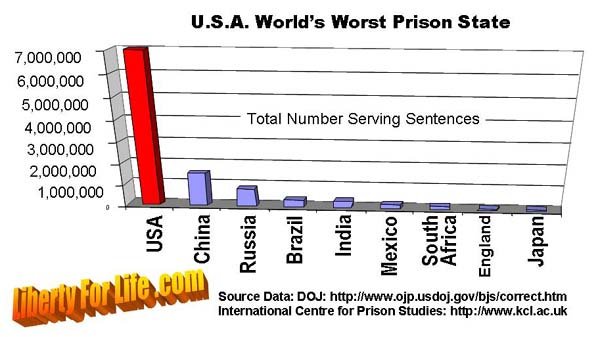

Curated for #informationwar (by @truthforce)
Relevance: Informing Everyone Of Their Rights!